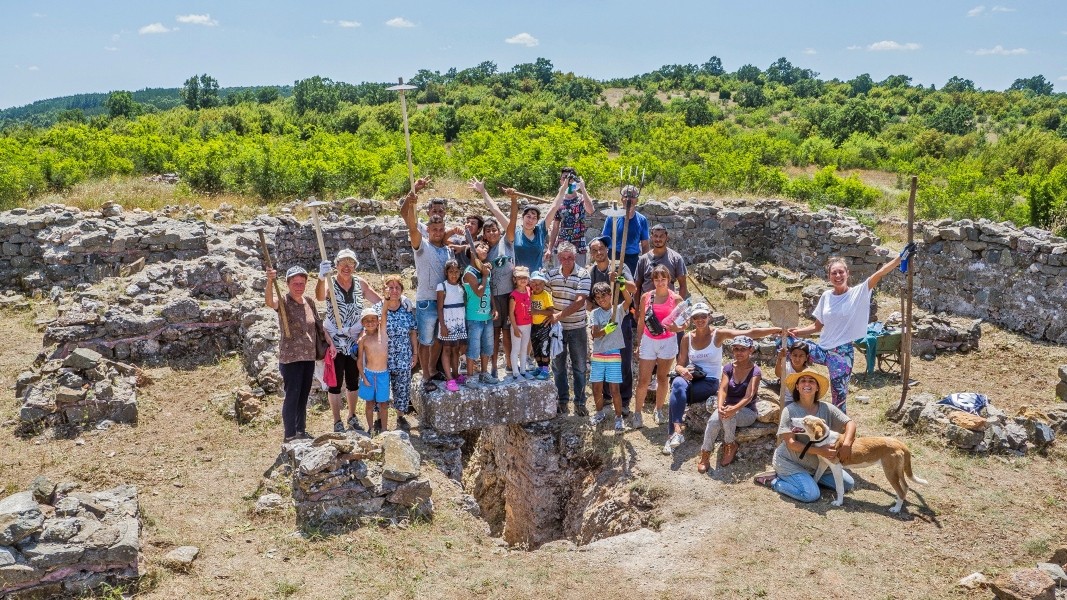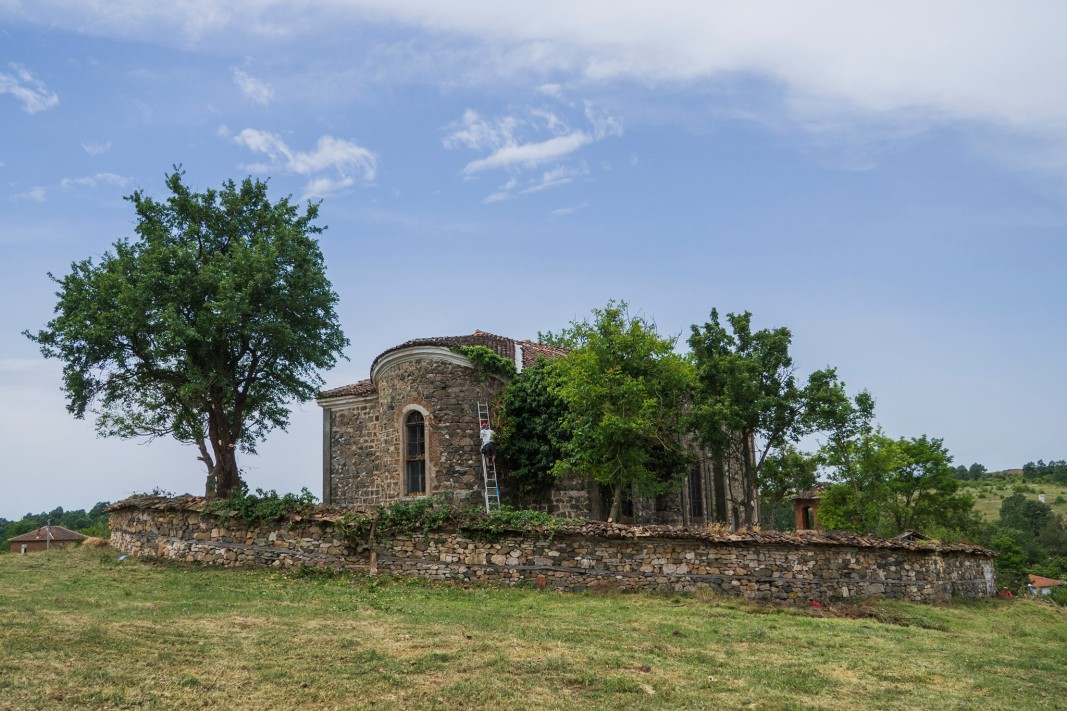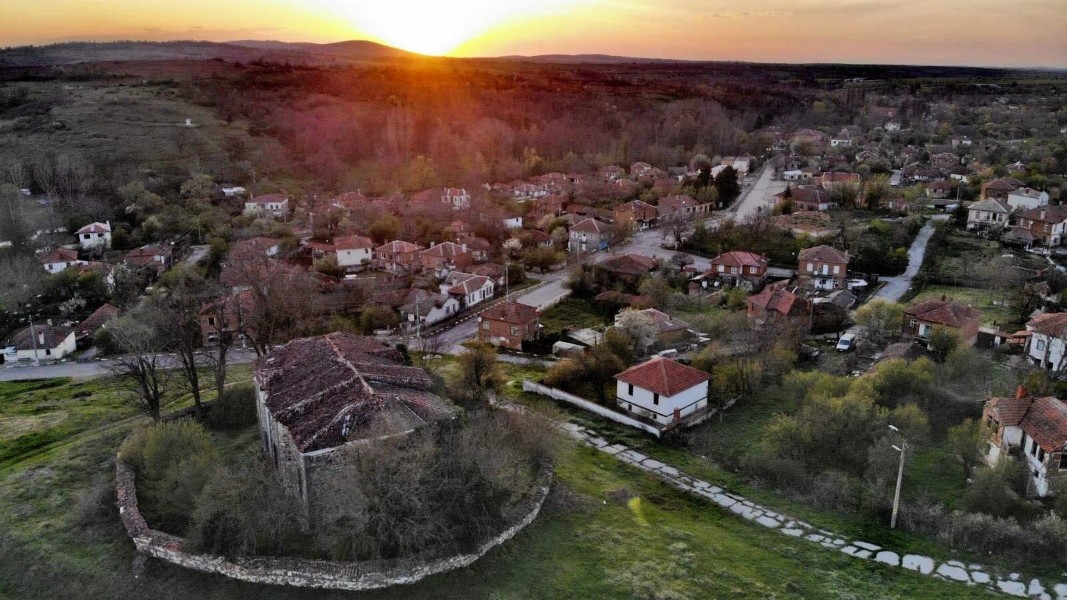It looked like Ivan-Alexander and Stefania had decided to go with the flow and see where it took them. But in fact they set off a series of wondrous events in a border village in Mount Strandzha. And while the pandemic has kept people at home, people in Voden have been energized – the older inhabitants renewing their village, and the children eager to learn new things.

When Covid-19 left a young photographer and his girlfriend, a dancer, out of a job, the two married at a registry office and left Sofia the very next day for a life in the country. They went to a village called Voden, a few kilometres from the border with Turkey where Ivan-Alexander spent carefree summers as a child.
“I have spent the best months of the year in the village, there are so many interesting places here,” he says. “For example, there are archaeological excavations of the remains of a monastery, in the centre of which there is a church and beneath it – a cave. There are also bunkers, it is a border region after all, and all kinds of animals in the woods. Everything is magical, here in the village and around it. The house itself is made of stones, of fired bricks. Looking at it, I can see the whole story behind it – the people who built it with a thought for the coming generations. This is the only place I can imagine my great-grandfathers going to the wood to chop wood to make the beams for the house, creating something so special for me.”

Arriving in the village for their honeymoon, the two thought they had found idyllic solitude. But life had other plans for them. Ivan-Alexander made a new board for obituaries to replace the old shabby one and that set off an avalanche of events. One day, as he was taking photographs of the church, the whole village gathered in the church yard and, together, got rid of the ivy that had taken hold of the building completely. Today the church opens doors regularly, not just at Easter and the donation box for the renovation of the building the young man made is never empty.

The young couple managed to create a new environment for the many children in the village, clearing the dusty rooms of the chitalishte (community culture club) of all the accumulated rubbish. There, the children are able to draw, read or be given their first ballet lessons.
“It all started with some children I met in the park and I saw they were dancing,” Stefania Georgieva remembers. “Two of the girls said it was their dream to become ballerinas and that they watched videos to learn how to do pirouettes and jeté leaps. I was astounded by how much they knew about ballet. That was when I told them my sister was a ballerina, and that she would come to the village and give them ballet classes.”

Stefania managed to organize a dance residence in the village, bringing here the artists from her company “Atom theatre” for a fortnight, together with a composer from Germany. They created two dance projects, which premiered first in Voden, then in Sofia and in Varna.
“We didn’t come here with a set plan what to do at the chitalishte or in the village,” Ivan-Alexander Ivanov explains. “Quite the opposite. We took strolls, looked around, talked to the people and that was how some initiatives just sprang up naturally. They, in turn, led to something positive in the end. If you make plans, that might never happen.”

Ivan-Alexander and Stefania believe that their life is now connected with the village. And that even when the pandemic is gone they are going to stay. They have a lot of work to do still, because the future of Voden – as anywhere else in the world – are its children. As Stefania says: Voden will grow more and more interesting, more and more intriguing, and our future lies there.”

Photos: private library
Bulgarian writer Georgi Gospodinov will receive the Order of Art and Letters - Knight degree, at a ceremony this evening at the residence of the French ambassador in Sofia. In this way, the country pays tribute to an outstanding author and European..
He is an artist as well as a philosopher. He likes to tell stories in colours, but also listen to them in melodies. He is Rumen Statkov and just a few days ago, on October 17, he presented his latest exhibition entitled "Dance" at the Nirvana gallery in..
A writer, a hero from the Second World War, an aviator, a journalist, a film director and a diplomat - the personality of Romain Gary (1914-1980) is multi-layered and enigmatic. And Bulgaria occupies a special place in the life and work of one of the..
The Gala Concert of the National Ballet of El Salvador will take place today at 16.00 in the State Opera House in Stara Zagora as part of the..
After the success of the "We are the children of the river" festival in September, a civic foundation is once again collaborating with the Plovdiv..
“A story that is worthy of a movie” is what we often say when we hear about some incredible event or an interesting story. It is cinema..

+359 2 9336 661
